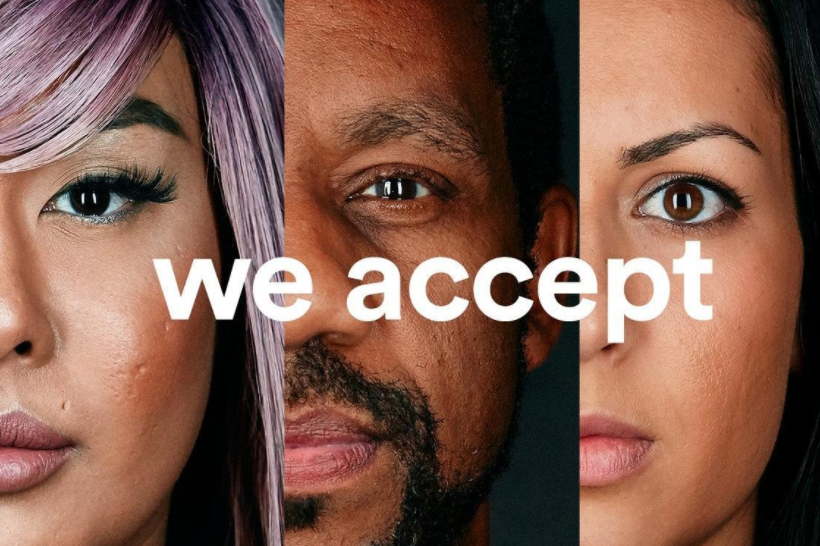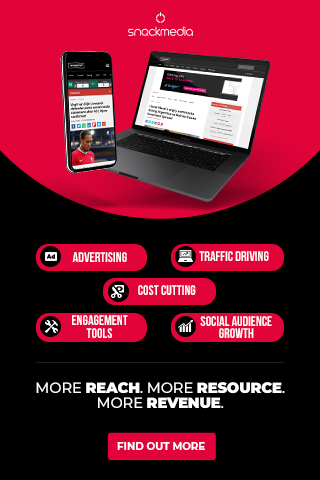Politically-charged ads rule the Super Bowl airwaves
The Super Bowl has become a cultural event. For sports fans, it means the exciting end to the NFL season. For non-sports fans, it means the most highly produced, expensive commercials of the year. It’s responsible for iconic commercials in American history, from Mean Joe Greene and Coke to Apple’s 1984 commercial to the eTrade baby.
But this year, the advertisements took a different path. Politically-charged advertisements have always been in the periphery of Super Bowl Sunday, but this year they took the front seat. More companies than ever chose to air political ads, whether the message was explicit or implicit.
These ads garnered mixed reviews. Some ads were warmly embraced for their message, while others were criticized for their poor execution or lack of product focus. Nevertheless, they all ranked among the highest in social media engagement and overall rating.
Political messaging was both implicit and explicit. But the top rated ad, an implicit messaging approach, was Kia’s climate-focused ad. Featuring Melissa McCarthy as an eco-warrior, the ad showed her scaling trees, protecting whales, and running from rhinos.
Measuring by the USA Today Ad Meter, it was the best advertisement of the night. Each year, USA Today gathers live responses from participants rating ads on a scale of 1-10 in an attempt to measure quality and viewer reaction. Kia’s “Hero’s Journey” advertisement ranked at 7.47, the highest of any ad. This was Kia’s first top five finish on the Ad Meter.
A different year, this ad may not have been seen as political. But this year the rules have changed. And it became a theme of the night. In a time where science and fact are under attack by the US government, ads have become unexpectedly political.
Coca-Cola jumped in with implicit political messaging when they decided to re-air their 2014 Super Bowl ad. The minute-long ad features people of different race and ethnicity singing America the Beautiful in their native language. The message may have been implicit, but when they chose to re-air an old, controversial ad at the Super Bowl, Coca-Cola made their message pretty clear.
Coming in at number three on the Ad Meter was one of the most explicitly political ads of the night—Audi’s appeal for equal pay. The ad, showing a father wondering about his daughter’s future, making explicit statements about equal pay, had an average 6.88 rating. It was also third in social media mentions for the night, with 85,000 mentions, according to social media analytics company Brandwatch. But not all of these were positive.
Many viewers praised the spirit of the ad, but criticized the company for its hypocrisy. Of its 14 executives, only two are women. And though it was the mostly highly rated explicitly political ad of the night, Audi happened to be the outlier.
Most politically-charged ads went for messages about immigration or American values. Audi went for equal-pay. That’s not to say that it’s not an important message, but it felt like the message was decided months in advance, with little regard to the current political climate.
Airbnb, on the other hand, went for a highly relevant political commercial. The 16th-rated ad on USA Today’s Ad Meter, Airbnb’s We Accept ad generated the most-used Super Bowl advertiser hashtag of the night with #WeAccept. The advertisement aligned with the company’s previously critical statements about the current administration, proclaiming a message of acceptance and belonging regardless of race, gender, sexuality, religion.
This advertisement also grabbed media attention for it’s origin. According to CNBC, Airbnb didn’t inquire about buying a Super Bowl ad until the week before the game. The ad was edited by the company’s cofounders in just a few days as a reaction to Trump’s travel ban. But it’s also worth noting that the ad recut footage from an autumn campaign. This campaign was in reaction to Airbnb’s questionable anti-discrimination policies and actions.
Acceptance starts with all of us. #weaccept pic.twitter.com/btgqyYHVTK
— Airbnb (@Airbnb) February 6, 2017
Finally, there were the explicit immigration ads. The first of these was the Budweiser ad. Pulling in at number four on the Ad Meter, the Budweiser ad depicted Adolphus Busch’s journey as a German immigrant as he took a boat across the Atlantic, endured abuse as a foreigner, and finally met Eberhart Anheuser to begin their beer partnership.
The ad generated over 63,000 mentions on social media for its pro-immigration stance. But interestingly enough, it’s supposedly not political. Budweiser officials stated that the ad depicted a universal story with no correlation to the political climate. They also stated that the ad was locked in October, before the election had even occurred. But given that their previous four Super Bowl commercials featured puppies and the iconic Clydesdale horses, it’s an interesting decision.
But the other immigration ad was by far the most controversial advertisement of the night. 84 Lumber made headlines a few weeks before the game when its ad was rejected by Fox for being too controversial in it’s depiction of a border wall between Mexico and the United States—an idea Trump latched on to and campaigned with.
As a result, the company aired a toned-down, unresolved version of the ad that directed viewers to its website for the full ad. The full ad showed a mother and daughter’s journey across Mexico to reach to the United States, only to be met by a towering wall at the border. The mother and daughter then find a door to go through, and the caption “The will to succeed is always welcome here”.
In its first Super Bowl ad, 84 Lumber ranked 29th on the Ad Meter. But it was number one in social media mentions with almost 99,000 mentions. And in the hour after the ad aired, the company’s website received over six million page requests—enough to crash the website for a brief period of time.
The ad was received both positively and negatively. Proponents praised the accepting message of the commercial. Critics said that the brand was trying to align itself with a political issue without trying to sell its product. The CEO stated that the company wasn’t afraid to take risks and send a message it believes in.
Perhaps these politically-charged messages are just the new normal. It’s clear that political ads incite a reaction on social media, both positive and negative. And their appearance at the advertising peak of the year means that more aren’t far behind.
About author
You might also like
SPORTEL 2021: Day One Recap
This year’s prestigious SPORTEL convention kicked off in sunny Monaco today, welcoming a host of familiar faces as well as plenty of new ones. Doors opened at 8:30am with businesses
Six Founding Riders Set To Bring The Vision Of The UCI Track Champions League To Life
Olympic Champions, UCI World Champions and World Record holders join the new track cycling competition debuting in November 2021 The UCI Track Champions League is delighted to announce that six
Sports related spending to soar this summer as pre-pandemic life resumes
New insights from eBay Ads UK reveal the potential for brands to engage with an excited but nervous nation as sports events get back on track As pubs and indoor








